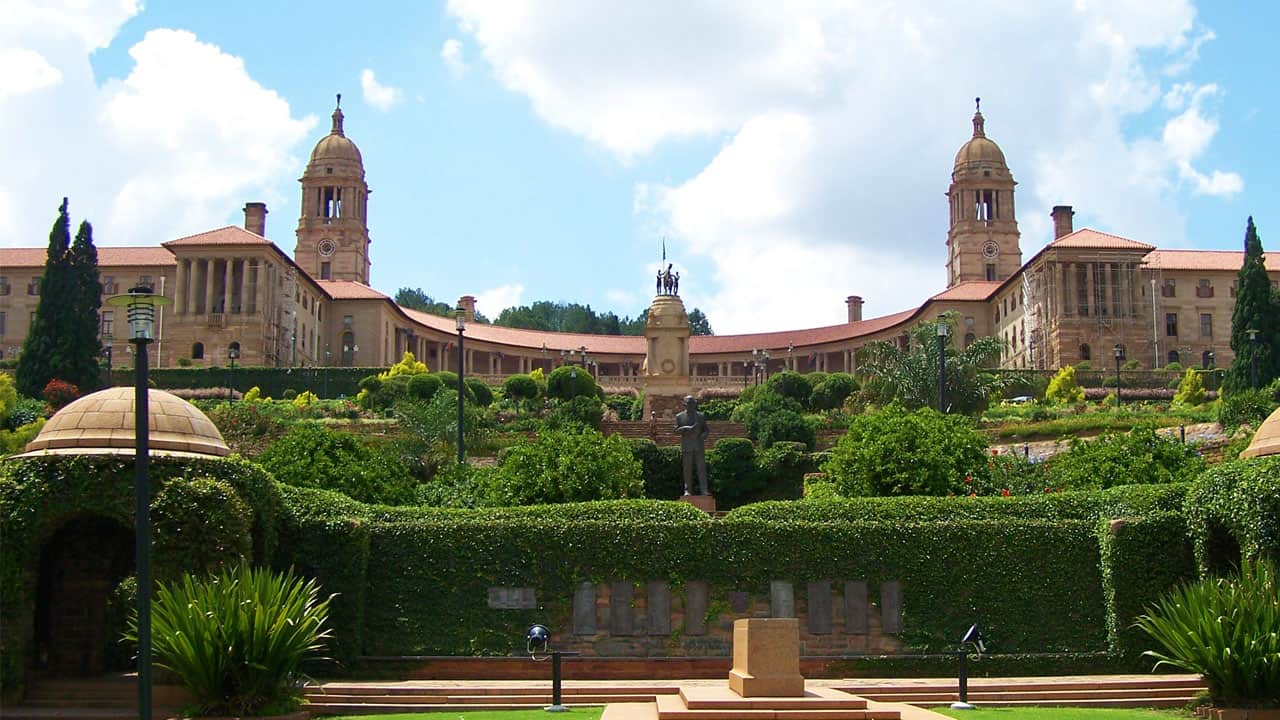|
Getting your Trinity Audio player ready...
|
Image: Flickr/GovernmentZA
The government of national unity (GNU) is firmly in place, receiving a mixed bag of public reviews as it recently marked its first 100 days. It has been three months since President Cyril Ramaphosa announced that the executive management of government responsibilities would be split among several political parties that signed up to be part of the GNU. There have been many public debates around its authenticity and integrity since its inception in July, following the failure of any of the parties contesting the May elections to emerge with an outright majority of votes.
The road to stability for the 11-party grand coalition, as the GNU is also referred to, has not been without its fair share of setbacks. Each of its larger political participants has come under scrutiny at one point or other, whether it be on principles of governance or mere insider politicking that can be expected in such an arrangement.
Ramaphosa has had to step up to defend the decision for his own party, the ANC, to go the GNU route, most recently to its long-time alliance partner, the South African Communist Party. The fundamentals of the ANC’s policies of development and service delivery would not be compromised, Ramaphosa has repeatedly promised, just because his party was no longer the only one in charge.
While there have been some developments that contradict this sentiment – such as the declaration by Home Affairs Minister Leon Scheiber that the immigration policy was to be reviewed in terms of the critical skills principle, and the boycotting of the signing of the BELA Act by Basic Education Minister Siviwe Gwarube, among others – detractors of Ramaphosa’s administration both within and outside his party have raised questions over everything from its still-bloated cabinet to lack of urgency in addressing economic growth.
During the recent celebration of the first 100 days of the GNU, Ramaphosa reportedly said those opposed to it should come up with an alternative that would best serve the country.
Right person for the job
On the point of the bloated cabinet, it is now more critical than ever that executive members’ skills, drive, and commitment to service delivery be regularly tested to ensure that we have the right minister in the right portfolio, given the unhealthy state of the economy, the poor state of service delivery, and the increase in violent crimes.
Probably more than ever in the 30 years of democracy, South Africans were most interested in the current cabinet formation and who would lead the critical portfolios such as finance, police, and those focused on service. Ramaphosa’s return to the presidency and the stamp of approval for his re-election by the parties now in government should translate into him carrying out promises made in his last administration.
One of these is the implementation and monitoring of performance agreements with ministers in his cabinet, promised in 2018 when he first took office and committed to reforms in transparency and accountability for the executive. Although these agreements have been drawn up, their monitoring and public evaluation has not materialised. Performance agreements between the president and his cabinet should ensure commitment to the latter’s tasks in a transparent manner that ensures accountability to the public.
In the same way that ministers take an oath at the beginning of their term in office to demonstrate their commitment to their public mandate, so too should their performance in that position be regularly evaluated to determine if they are fit for purpose. However, even as the sixth administration was wrapping up, there were no pronouncements on performance agreements and how the president had rated the individual achievements of members of his executive.
Enter the GNU phase and the medium-term development plan (MTDP) that has been agreed upon as its action plan. The issue of performance agreements has once again emerged as an integral part of holding the executive accountable. It is, however, incumbent on the plan being finalised and approved by cabinet.
Granted, the plan is a delicate work in progress, given that each party in the GNU must find its own identity within it before implementation, but how are we to be assured that performance agreements of cabinet members are a GNU priority in the context of the plan?
We need to know
Much must still be ironed out in terms of policy rework and agreements on the priorities of departments, particularly those that have left the ANC’s hands. It is understandable and expected that each political party participating in the GNU wants to see some of its own identity come through in the final action plan of this unique form of government, as promised to voters in their election manifestos.
But, as South Africans struggle with regular access to services such as water, electricity, and police protection, we are less inclined to be interested in which political ideologies find favour in the final plan than we are in how the plan will ensure the return to normal for basic services like water, electricity, good roads, and more. We need to be assured that the negotiations around how political parties settle their differences in our best interest are done in good faith and with the public interest principle at the centre. More than it is about each party using the GNU to help position itself to prospective voters, it should be about individual commitment to improving areas of government that have not achieved their potential in meeting the needs of the public.
We need a structure that does not just allow for the president to be entrusted with appointing the right people to the critical executive positions that report to him, but that also allows for those individuals to account fully for the portfolios they hold and whether they are able to sustain them.
Even as the GNU marks its first 100 days, media reports suggest that the MTDP is not yet a done deal, and that it may be a while before we see a complete document that fully represents all the contributors’ desires. Nonetheless, it is important that we as the public are taken into cabinet’s confidence and reassured of its commitments.
The elections of 2024, and the negotiations for positions that followed thereafter, showed us that power is important to politicians and will be used or bartered for their interests. What is important now is that each oath taken by a cabinet minister be followed up by a publicly shared agreement that ensures their accountability to not only the GNU, but also the public. The assessment of each cabinet member’s performance is our business, and there should be transparency in how it is managed.








